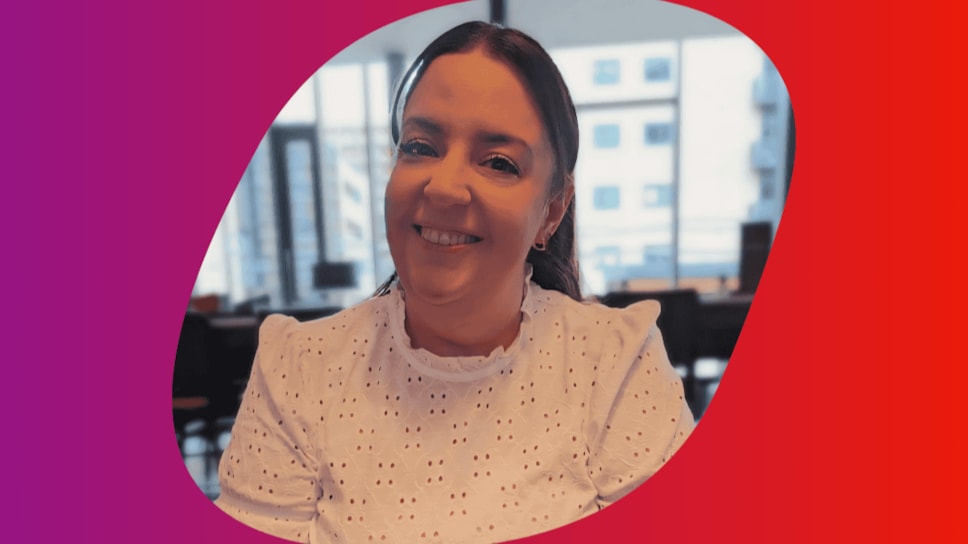
A conversation on social value and creating lasting impact at E.ON
The work we do goes far beyond providing energy solutions – it’s about building stronger, fairer, and more resilient communities.
One of the people leading this charge is Lauren Dane, Social Value Delivery Manager for Green Funding Solutions (GFS).
Lauren spends her days making sure that our projects leave a lasting footprint of positive change. From supporting vulnerable households to creating employment opportunities and partnering with local organisations, she ensures that the benefits of our work ripple through communities long after the technical work is complete.
We sat down with Lauren to talk about her role, her passion for social value, and what it really means to deliver change that lasts:
Can you tell us a bit about your role?
I’m the Social Value Delivery Manager for GFS, which means I help ensure our projects create positive, lasting change for people and communities. My role combines strategy and delivery: from shaping social value commitments at the bid and tender stage, to working with our internal teams, councils, housing associations, and funding partners to bring them to life on the ground and realise tangible benefits.
This might include supporting local employment, helping vulnerable households, or strengthening community resilience alongside improving residents’ homes, within our retrofit projects. At the heart of it, it’s about leaving things better than we found them and it’s very much a team effort!
What does social value mean to you?
For me, social value is about doing more than just the “day job.” It’s understanding and responding to the needs and priorities of local communities, while also thinking about the long-term impact for future generations. It’s making sure everyone, no matter their starting point, has the chance to flourish. Social value means creating fairness, opportunity, and tangible benefits that meet today’s needs and leave a lasting positive legacy.
Why is social value so important to E.ON?
Because we’re not just an energy company – we’re part of people’s everyday lives. Tackling climate change and fuel poverty can’t be done in isolation, so building social value into our work makes sure the benefits are wider and longer lasting. It’s also about social equity: ensuring that communities who might otherwise be left behind have access to the same opportunities and improvements. It’s how we show we’re a responsible partner, not just a service provider, through “making new energy work” for everyone
Are there any successes or highlights you’d like to share?
One highlight has been our work with Building Heroes, supporting veterans with training and career opportunities in the green energy sector. It’s rewarding to see people gain new skills, build confidence, and move into meaningful roles. Alongside this, GFS has created employment and learning opportunities for local communities, funded transport for disadvantaged learners to attend construction courses, and supported initiatives that give people the skills and confidence to thrive, as well as donations of time and money where it’s needed most.
We’re embedding social value from the start in new contracts, ensuring we consistently deliver high impact by linking community outcomes to every stage of project delivery. For me, the real highlights are the human stories, seeing the tangible impact on someone’s life and knowing it could ripple forward to benefit others.
What advice would you have for other organisations seeking to deliver social value in their community?
Start small and listen first. Social value doesn’t have to mean big, costly programmes, often it’s about understanding what matters locally and aligning your support to those needs. Building partnerships with community groups who already have trust and presence on the ground. Always measure what you do, so you can learn and improve. And remember, it’s not just about the here and now, it’s about creating a fairer foundation for the future too.
How do you measure or evaluate the impact of the social value initiatives you deliver?
In GFS, we primarily measure the impact of our social value initiatives through social value frameworks, and the exact approach can vary by contract. These frameworks help us track both the financial and social return of our activities and ensure we deliver what we set out to achieve.
But it’s not just about numbers, we also capture case studies, personal stories, and feedback from the people and communities involved. We’ve created a centralised tracker to keep all our social value activity in one place, which also supports reporting. These insights bring the data to life and show the real difference being made.
At the end of the day, it’s about asking: have we left communities better off and supported local priorities while creating measurable, lasting benefits, and created opportunities for people to thrive?
What future opportunities or challenges do you see for creating social value at E.ON?
The biggest opportunity is in aligning social value with the clean energy transition. Every ‘green’ investment has the potential to deliver wider community benefit, whether that’s through skills, jobs, health improvements, or sustainable solutions for future generations. The challenge will be keeping that focus sharp in a fast-moving, commercially driven environment, but for me, it’s non-negotiable.
Anything else you’d like to add?
Just that I feel proud to work for a business that doesn’t see social value as a tick-box exercise. At E.ON, and certainly within GFS, it’s genuinely part of the culture. It’s about leaving things better than we found them, and creating meaningful, lasting impact in the communities we serve.
Closing thoughts
Lauren’s work shows that social value is not an add-on at E.ON – it’s built into the very fabric of how we deliver for communities. From supporting veterans and disadvantaged learners to helping families live in warmer, more resilient homes, her work ensures that the benefits of the net zero transition are shared by everyone.
